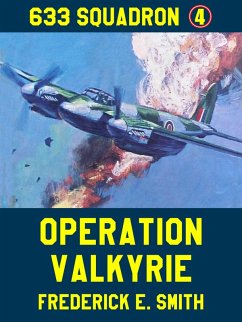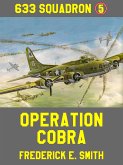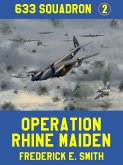Frederick E. Smith (1919-2012) joined the R.A.F. in 1939 as a wireless operator/air gunner and commenced service in early 1940, serving in Britain, Africa and finally the Far East. At the end of the war, he married and worked for several years in South Africa before returning to England to fulfill his life-long ambition to write. Two years later, his first play was produced and his first novel published. Since then, he wrote over forty novels, about eighty short stories, and two plays. Two novels, 633 Squadron and The Devil Doll, were made into films, and one, A Killing for the Hawks, won the Mark Twain Literary Award.
Dieser Download kann aus rechtlichen Gründen nur mit Rechnungsadresse in A, B, BG, CY, CZ, D, DK, EW, E, FIN, F, GR, H, IRL, I, LT, L, LR, M, NL, PL, P, R, S, SLO, SK ausgeliefert werden.









